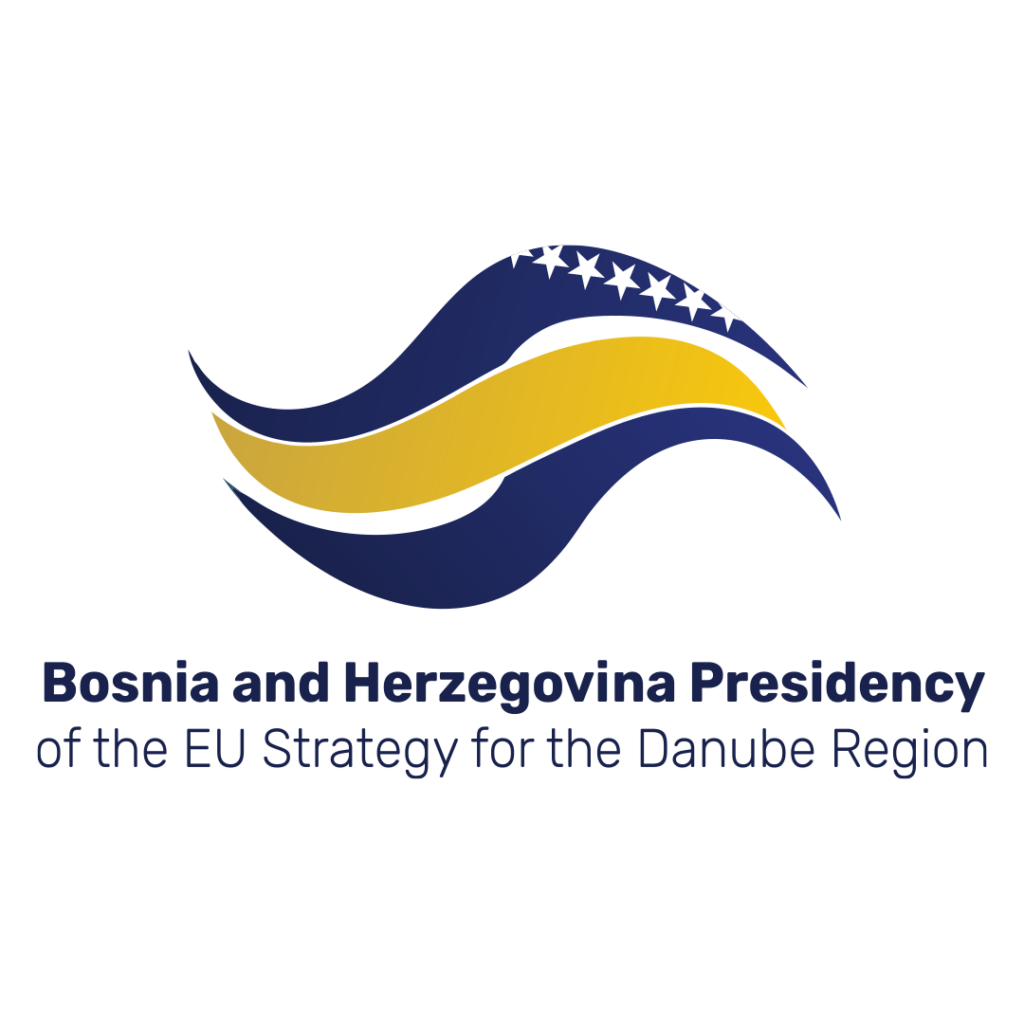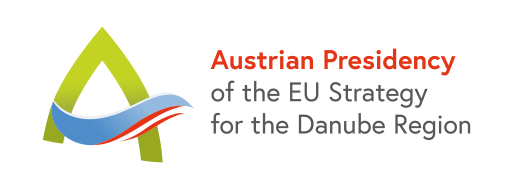Pursuing a rotation principle, the EUSDR Presidency is taken over by an EUSDR participating state for a one-year period. The incumbent EUSDR Presidency proactively performs the coordination among National Coordinators (NCs) and Priority Area Coordinators (PACs), supported by the Danube Strategy Point (DSP) and in cooperation with the European Commission (EC) and strives to facilitate decision-making and cooperation. Each EUSDR Presidency will organise and chair at least one meeting of NCs, one meeting of PACs and one joint meeting of NCs and PACs, with the support of the EUSDR TRIO Presidency and the DSP, in cooperation with the EC. The incumbent Presidency is in charge of hosting the EUSDR Annual Forum, ideally back-to-back with a ministerial meeting where a ministerial declaration should be adopted in order to raise the political profile of the EUSDR, in cooperation with the EC and with the support of DSP.
Bosnian and Herzegovinian EUSDR Presidency (2025)
Bosnia and Herzegovina is taking over the Presidency of the Danube Region Strategy during a challenging period marked by geopolitical shifts and climate change impacts, which require strong cooperation and dialogue across the Danube Region. The Danube Region Strategy unites EU member states and EU accession countries to address shared issues on equal footing. During its chairmanship, Bosnia and Herzegovina aims to accelerate the European integration process while remaining focused on the grand challenges of our time.
Bosnia and Herzegovina will hold the EUSDR presidency from 1 January 2025 to 31 December 2025 under the slogan Flowing together, growing together.
Please click here for more in-depth information on the Presidency., including a full list of planned meetings and events.
The EUSDR Calendar of events is available here. Last update: 19.06.2025.
Previous EUSDR Presidencies
Austrian EUSDR Presidency (2023 – 2024)
Austria held the Presidency at a moment when the Danube macro-region is living through a time of transition. Beyond Russia’s ongoing illegal war of aggression against Ukraine, we are facing fundamental and far-reaching transformations: geopolitical shifts, economic uncertainty, climate change, changing demographics and growing social imbalance. All these challenges call for intensified cooperation across borders.
Under the slogan ‘Shaping Transformation, Creating Opportunities: A Prosperous, Resilient and Secure Danube Region‘, Austria holds the Presidency of the EUSDR from 1 November 2023 to 31 December 2024.
For more in-depth information on the Presidency, including a full list of meetings and events, please click here.
Vienna Danube Declaration – Joint Statement of the Danube Foreign Ministers from the EU Strategy for the Danube Region (Vienna, 20 June 2024), adopted at the Ministerial Meeting that took place back-to-back with the 13th EUSDR Annual Forum.
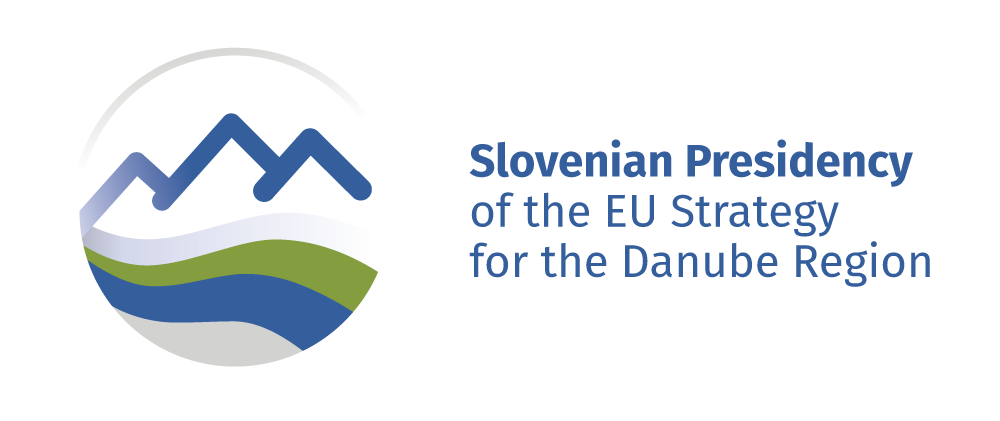
Priorities and programme
From 1 November 2022 until 31 October 2023, Slovenia held the Presidency of the European Strategy for the Danube Region. The Slovenian EUSDR Presidency focused on the future development of the Danube Region and on empowered cooperation of all EUSDR participating countries, maintaining full solidarity with Ukraine.
Given that the Danube Region is one of the most heterogeneous and diverse regions in Europe, with nine EU and five non-EU countries, the Slovenian EUSDR Presidency focused on the involvement, empowerment, communication and capacity-building of key stakeholders participating in the EUSDR in a structured and strategic way.
To act as a promoter and facilitator of macro-regional cooperation between all countries and all macro-regional strategies, the Slovenian EUSDR Presidency had the following institutional priorities:
- Empowering involvement in the EUSDR
- Improving the strategic governance of EUSDR and macro-regional strategies
- Youth involvement and its role in the EUSDR
- Embedding process – evaluation and further steps
The thematic priorities of the Presidency focused on
- Knowledge society and professions of the future
- Transport and energy challenges in the Region.
Programme of the Slovenian Presidency
Meetings & events of the Presidency:
Opening event of the Slovenian EUSDR Presidency – 1 December 2022, Slovenia
Launching the Slovenian EUSDR Presidency – 1 and 2 December 2022, Slovenia
Calendar of the Slovenian EUSDR Presidency
Empowering countries and regions for stronger involvement in the EUSDR – Guidelines for future work by the Slovenian EUSDR Presidency
12th EUSDR Annual Forum
The Slovenian EUSDR Presidency hosted the 12th EUSDR Annual Forum on 24 and 25 October 2023 in Brdo pri Kranju, Slovenia. More information about the event can be found here.
At the occasion of the 12th EUSDR Annual Forum, the Slovenian EUSDR Presidency published a brochure summarising achievements of the Presidency.
Joint Statement of Ministers responsible for the implementation of the EU Strategy for the Danube Region (Brdo pri Kranju, 24 October 2023) adopted at the 12th EUSDR Annual Forum jointly organised by the Republic of Slovenia, the European Commission and the Danube Region Programme with the support of the Danube Strategy Point
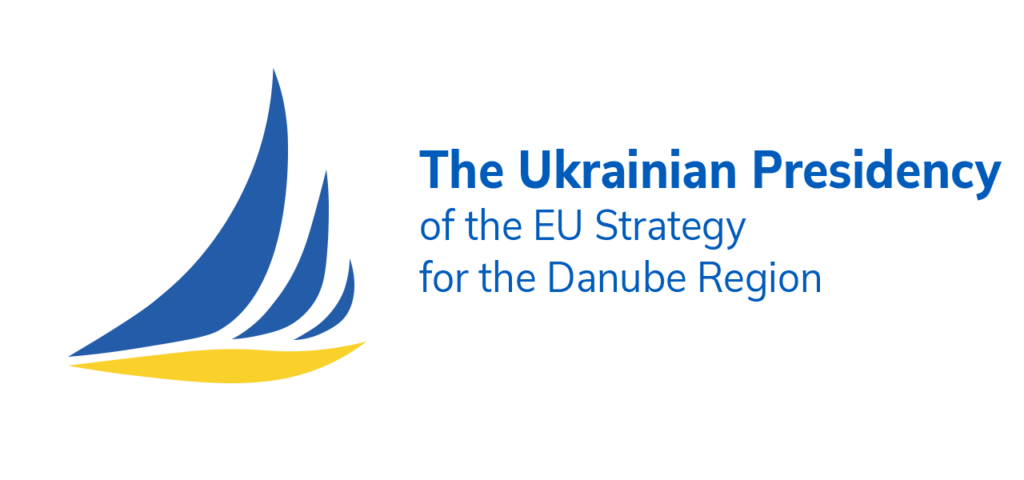
Priorities and programme:
Ukraine was the first non-EU country to hold the Presidency of the EUSDR, aiming at continuing the initiatives launched by previous presidencies and having a strong focus on sustainable development of the Danube Region, through economy and infrastructure (in line with the European Green Deal) as well as through human capital and labour markets.
Regarding economy and infrastructure by exploring green concepts in relation to economic growth, the Ukrainian Presidency gave emphasis on circular economy, sustainable transport modes, use of digital technologies and their contribution to reducing greenhouse gas emissions and decarbonisation. As far as human capital and labour markets concerned, Ukraine aimed at supporting education (focusing on quality of education in the Danube Region) and social innovation as a way to improve employability.
Following the Russian invasion and the unprecedented, illegal and unprovoked full-scale war of the Russian Federation, Ukraine had to temporarily resign from the EUSDR Presidency in February 2022. The Presidency duties were temporarily taken over by the remaining TRIO members, Slovakia and Slovenia, with support from the DSP, until Ukraine was luckily able to resume its Presidency in May 2022.
The political priorities of the Ukrainian EUSDR Presidency focused on:
- Embedding EUSDR priorities in finding programmes
- Enhancing the institutional capacity of the EUSDR
- Strengthening the role of civil society in the implementation of the Strategy
- Involvement of youth in order to improve institutional capacity and interaction with civil society.
The thematic priorities of the Ukrainian Presidency focused on the following aspects:
- Sustainable Development of the Danube Region: decarbonisation and transformation of the Economy
- Development of human capital and labour markets.
The 11th EUSDR Annual Forum, jointly organised by Ukraine with the support of Slovakia and Slovenia as EUSDR TRIO Presidency members, the European Commission, the Danube Region Programme and the Danube Strategy Point, took place in Košice (Slovakia) an online in October 2022, under the motto “Recovery. Development. Unity”. The event was organised by Slovakia and Ukraine as a physical Annual Forum on the territory of Ukraine was not possible, due to the ongoing war.
Joint Statement of Ministers responsible for the implementation of the EU Strategy for the Danube Region (Košice, 19 October 2022) adopted at the 11th EUSDR Annual Forum jointly organised by Ukraine with the support of Slovakia and Slovenia as EUSDR TRIO Presidency members, the European Commission, the Danube Region Programme and the Danube Strategy Point.
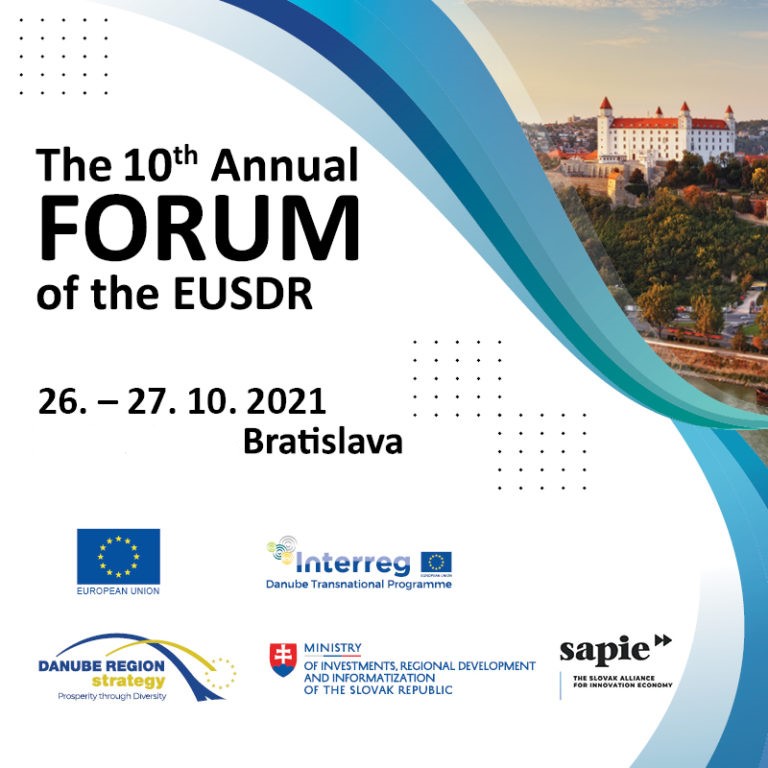
Priorities and programme:
The main priority of the Slovakian EUSDR Presidency was embedding of the EUSDR into EU-Funding 2021-2027, which was presented in the strategic funding document “From Words to Action”. The concept focused on five practical ideas on how to put EUSDR embedding into practice.
Also, under the Slovakian Presidency a concept for youth involvement in the Danube Region Strategy, leading to establishing a Danube Youth Council (DYC) and a Network of Danube Youth Organisations (DYON), was introduced.
The political priorities of the Slovakian EUSDR Presidency focused on:
- Greater political commitment at the level of all Partner States
- Participation of non-EU countries
- Further development of Governance structures and management:
- Cooperation of Stakeholders involved in Implementation
- Cooperation among EUSDR Priority Area Coordinators
The thematic priorities of the Slovakian Presidency focused on the following aspects:
- Climate change and the protection of biodiversity
- Digitisation and innovation ecosystems
The 10th EUSDR Annual Forum was organised in Bratislava and online (hybrid format) in October 2021, under the motto “Towards a green and digital Danube Region”.
Joint Statement of Ministers responsible for Innovation and Digitalisation of the participating countries of the EU Strategy for the Danube Region (Bratislava, 26 October 2021) adopted at the 10th EUSDR Annual Forum organised by the Slovakian EUSDR Presidency.
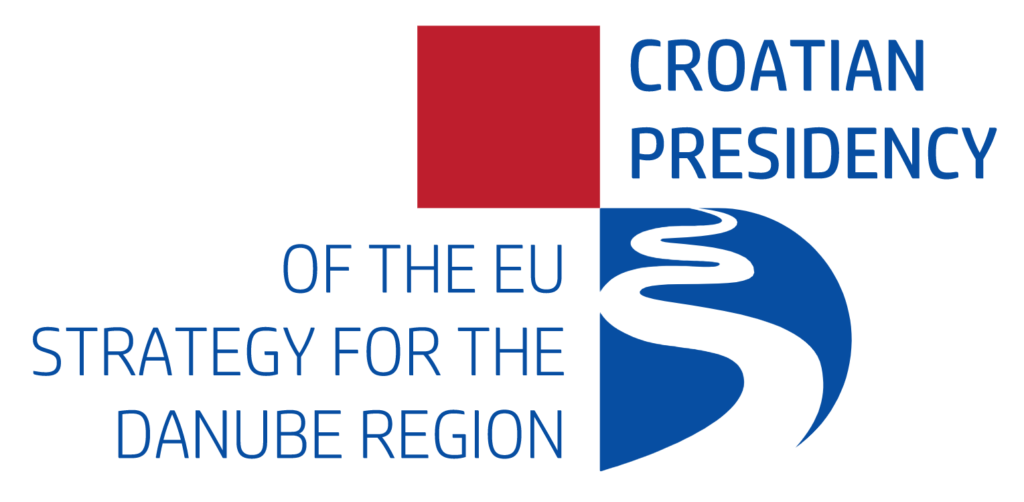
Priorities and programme:
Croatia placed regional development at the very centre of its Presidency of the Danube Region Strategy, as a precondition for economic growth, sustainable social development and strengthening of territorial cohesion, being also an opportunity to strengthen the role of macro-regional strategies in the Cohesion Policy of the European Union.
“The Danube Strategy – 10 Years Later” was the central theme of the Croatian Presidency of the EU Strategy for the Danube Region. The main goal was to identify the role of macro-regional cooperation, to evaluate the achieved results and to determine the future direction of its development.
The Croatian EUSDR Presidency provided an opportunity to strengthen the affirmation of macro-regional strategies and territorial cooperation in the Republic of Croatia, the Danube Region and the European Union.
The Croatian EUSDR Presidency had the following institutional priorities:
• Strengthening the role of regional development
• Creating synergies between macro-regional strategies and Cohesion Policy
• Cooperation with the countries of the Western Balkans
The thematic priorities of the Croatian Presidency focused on the following aspects:
• Environmental protection and sustainable economic development
• Inland waterways, tourism and smart villages
• Civil protection
• Regional and local government capacity building
Due to the Covid-19 Pandemics, the 9th EUSDR Annual Forum was organised in Zagreb in October 2021. and the participants were able to join the event online. The motto of the Forum was „Harmonious and sustainable development of the Danube Region” and focused on the ecological, economic and social aspects of sustainable regional development in the Danube Region.
Joint Statement of the Ministers responsible for the implementation of the EU Strategy for the Danube Region (Zagreb, 22 October 2020) adopted at the 9th EUSDR Annual Forum organised by the Croatian EUSDR Presidency.
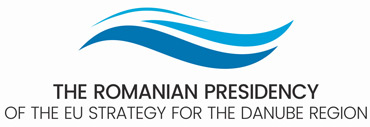
Priorities and programme:
The Romanian EUSDR Presidency focused on structuring the involvement, empowerment, communication and capacity-building of EUSDR key stakeholders. Specific interest was shown in promoting the objectives and themes related to the Danube Region Strategy, while continuing the development of the Danube Region and the empowered cooperation of all EUSDR participating countries.
The Romanian EUSDR Presidency had the following institutional priorities:
- Intensifying the cooperation between the Member States and the European Commission in the process of updating the EUSDR Action Plan;
- Optimising the way of carrying out relevant EUSDR actions and creating new possibilities for encouraging and promoting projects that contain a EUSDR component in Romania;
- Identifying the benefits that the implementation of the EUSDR can bring to Romania through the emphasis on ensuring economic and social cohesion and reducing territorial development disparities at the European level;
- Promoting the benefits of EUSDR at the national level and the entire Region through public events and related actions organised internally and externally;
- Strengthening the interaction between stakeholders participating in the EUSDR Priority Areas by promoting connectivity, mobility and competitiveness through the transnational development of clusters;
- Increasing Romania’s visibility at the European level through the EUSDR, through a close collaboration of government actors with social partners and representatives of the academic sector.
The thematic priorities of the Romanian Presidency focused on the following aspects:
- Improving connectivity and mobility in the Danube Region by promoting transport, tourism, digitisation and people-to-people contacts;
- Revitalisation of the EUSDR in the process of updating the EUSDR Action Plan by creating synergies between key-stakeholders in the Danube Region and the European Commission, as well as by operationalising the Focal Point for Technical Assistance;
- Exchanges of experience and best practices on EUSDR Priority Areas regarding legislative aspects, in close collaboration with the public administration, with social actors, with the academic and business sector;
- Transnational development of clusters through the exchange of best practices between entities participating in the EUSDR.
The 8th EUSDR Annual Forum was organised in Bucharest in June 2019 under the motto „The Danube Region: building cohesion for a shared prosperity”.
Joint Statement of the Ministers of Economy and Business Environment of the participating countries of the EU Strategy for the Danube Region (Bucharest, 27 June 2019) adopted at the 8th EUSDR Annual Forum organised by the Romanian EUSDR Presidency.
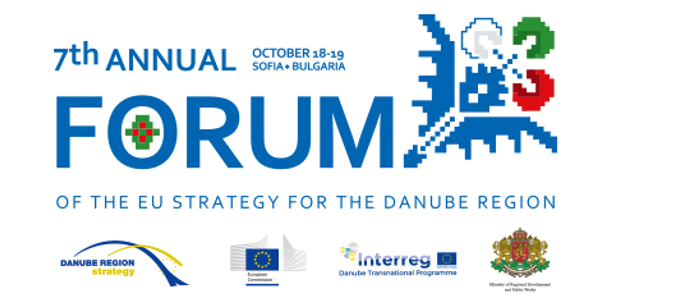
Priorities and programme:
The Bulgarian EUSDR Presidency aimed at ensuring continuity and further improvement of the governance and coordination of the EUSDR.
Particular attention was paid to the re-establishment of the Danube Strategy Point, as a significant supporting structure for promoting and supporting the implementation of the EUSDR and enhancing its effectiveness through improved communication.
The Bulgarian EUSDR Presidency focused on the following priorities:
- the development of tourism and preservation of cultural heritage as a precondition for economic growth and territorial cohesion,
- facilitating transparent decision-making processes on various topics of discussion within the Strategy.
The 7th EUSDR Annual Forum was organised in Sofia in October 2018 and focused on tourism development as a precondition to economic growth and territorial cohesion.
Joint Statement оf the Ministers responsible for Tourism of the participating countries of the EU Strategy for the Danube Region (Sofia, 18 October 2018) adopted at the 7th EUSDR Annual Forum organised by the Bulgarian EUSDR Presidency.
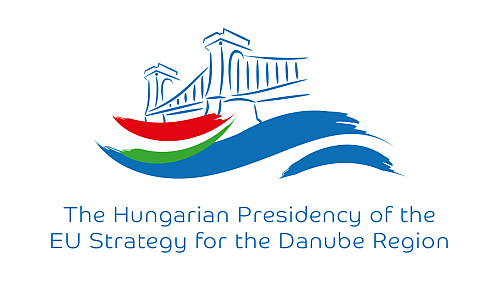
The thematic focus of the Hungarian Presidency was:
– regional energy security,
– the development of green transport infrastructure / network,
– determination of priorities for the funding period after 2020.
One of the most outstanding achievements is that it succeeded in starting a regional policy and professional dialogue regarding the post-2020 role of macroregional strategies on the main financing directions and needs. Discussion started on the macro-regional priorities of the forthcoming multiannual financing framework convening first time the Presidencies of the 4 EU macroregional strategies and experts managing European funding programmes. Conclusions of the meeting and outcomes of the Presidency programme were presented for the European Parliament Committee on Regional Development.
A gap-filling study, entitled ‘A Secure, Connected and Prospering Danube Region‘ was also prepared during the Hungarian Presidency, which outlined an economic and social snapshot of Danube region countries in relation to the other three macro-regional strategies. The study provided a clear picture about processes driving the Danube region as we approached the 2020 dividing line.
The EUSDR Hungarian Presidency’s year included several valuable accompanying events related to the above priorities. On 31 May a professional seminar was held to discuss regional energy security challenges. In June two events were organised a professional conference on the topic of green transport development and a financing conference. An ’EUSDR Environmental Pillar – Stakeholder Seminar’ was hosted by the Hungarian Ministry of Agriculture on 17 October strengthening the cross-sectorial cooperation among EUSDR priority areas 4,5 and 6.
Strengthening the ties of cultural cooperation the Presidency announced the „One day of Danube” photo competition together with the Robert Capa Contemporary Photography Centre and selected the bests of the 400 applications from 14 countries. The ’70 marathons for the Danube’ was a novel sport initiative. For the first time since the establishment of EUSDR an ultra-athlete ran the entire length of the Danube from source to the Danube-delta, during which students, local government representatives and decision-makers were made aware of the common values of Danube, the EUSDR and the priorities of the Hungarian Presidency.
The 4th Danube Participation Day gathered representatives from civil society organisations, local, regional and national public authorities, university and research at the Andrássy University in Budapest. The event served as a platform for the exchange of views and supported the participatory governance in the Danube Region.
In October 2017 the 6th EUSDR Annual Forum was organised in Budapest under the title “A secure, connected and prospering Danube Region” with more than 1,200 participants from 35 countries. Joint Statement of the Ministers responsible for the implementation of EUSDR (Budapest, 19 October 2017) laid down the strategic directions related to the thematic priorities of the Presidency programme. The statement highlighted the importance of diversified energy sources, the role of fully interconnected gas and electricity networks, the necessary development of the TEN-T corridors and increasing the number of border crossings, the promotion of low-emission vehicles using alternative fuels and the optimal use of available funding instruments of the European Territorial Cooperation programmes. The Annual Forum presented ways in which neighbouring non-EU countries (Ukraine, Serbia, Moldova, Montenegro and Bosnia and Herzegovina) can better co-operate within the Strategy. An Expo gave possibility for EUSDR Priority Areas and promising projects to present themselves during the Forum and it became a networking platform to share ideas.
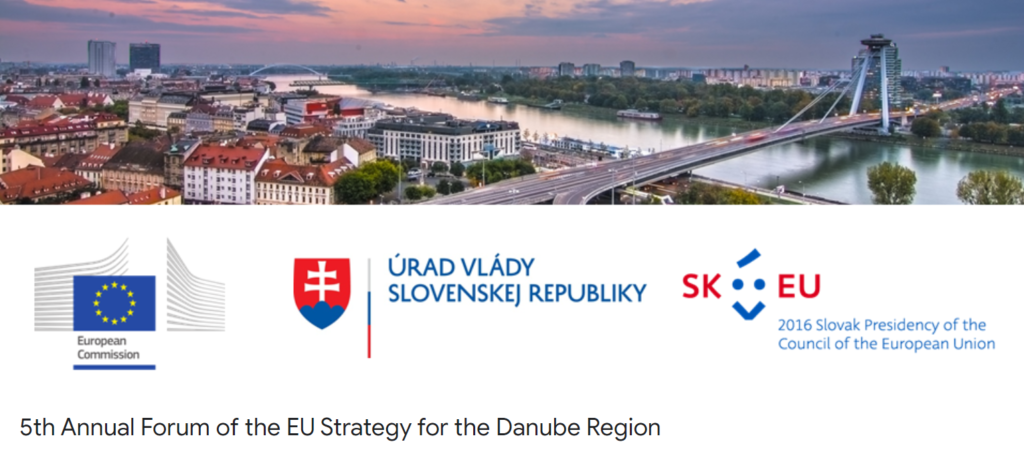
The 5th EUSDR Annual Forum was organised in Bratislava in November 2016.
It was organised under the title “Innovative Flows: Water, Knowledge and Innovation in the Danube Region”. The Fifth Annual of the Danube Strategy, held in Bratislava, was specifically focused on the following topics:
Thematic focus:
- Water issues: protection and rational use
- Knowledge society, research and innovation
Horizontal priorities:
- Governance (strengthening the role of participating stakeholders)
- Embedding: incorporation of the Danube Strategy into the better use of the European Structural and Investment Funds
Transnational dimension of the action was ensured by the involvement of participants from other countries and international institution into the organisation of the action and into the selection of particular topics (especially as regards the workshops). Each workshop was practically and thematically organised by a respective leader (Danube Transnational Programme. services of the European Commission, Priority Area Coordinators, etc.). During the Panel of Mayors, the participating Mayors of four capitals shared their views and practical experience with the implementation of the Strategy on a municipal level.
Joint Statement of the Ministers responsible for Research and Innovation of the participating countries of the EU Strategy for the Danube Region (Bratislava, 3 November 2016) adopted at the 5th EUSDR Annual Forum organised by the Slovakian EUSDR Presidency.

Priorities and programme:
Under the German (Baden-Württemberg, BW) EUSDR Presidency, the EUSDR TRIO Presidency as well as their Rules of Procedure were introduced to ensure continuation of measures and projects already implemented.
An important institutional priority was the embedding process to systematically interlink the Strategy and the European Structural and Investment Funds. For the first time, ESF Managing Authorities of all 14 EUSDR countries met in Stuttgart. A special merit of the German (BW) Presidency furthermore is the involvement of National Coordinators in the INTERREG Danube Region Programme.
In May 2015, the State of Baden-Württemberg has officially set up the Danube Strategy Point (DSP) in its Representation to the European Union in Brussels and hosted the DSP during its two-years pilot-phase.
The German (BW) EUSDR Presidency thematically focused on the topics: innovation, professional training and dual education, entrepreneurship and civil society as well as migration.
The 4th EUSDR Annual Forum was organised in Ulm in October 2015, under the motto “Smart, social, sustainable – Innovation for the Danube Region”. Within the framework of the Annual Forum, four thematic sessions with several panel discussions and over 40 workshops were organized. In addition, stakeholders had the opportunity to present themselves with booths at the fair in Ulm and could arrange bilateral talks via a “matchmaking-calendar”. Approximately 1200 participants attended the Annual Forum. Prior to the main event, the 2nd Danube Participation Day for civil society actors took place.
Joint Statement of the Ministers in charge of EU Funds, European Affairs or European Integration from the participating States and Regions of the EU Strategy for the Danube Region (Ulm, 29 October 2015) adopted at the 4th EUSDR Annual Forum organised by the German (Baden-Württemberg) EUSDR Presidency. Following this meeting, the ESF Managing Authorities Network of the EUSDR was established. It aims at fostering transnational cooperation within the ESF Operational Programmes in the Danube Region and serves as a knowledge hub for implementation, planning, and exchange of experience with social policies.
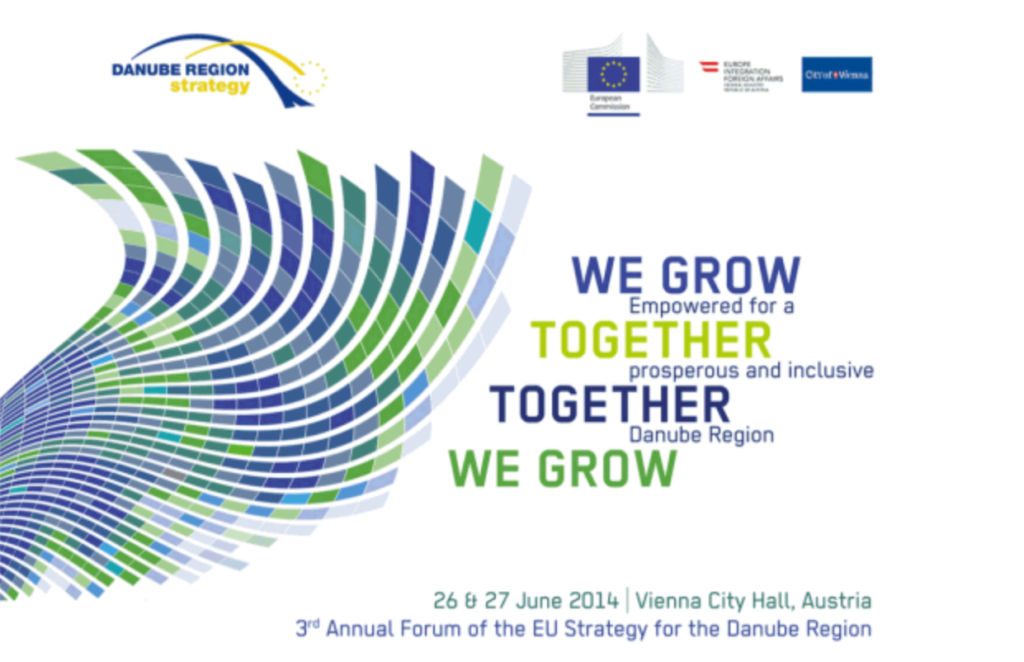
The 3rd EUSDR Annual Forum under the Motto ‘We grow together – together we grow. One theme, three perspective’ was organised in Vienna in June 2014.
Representatives from politics, public service, civil society and business discussed ways how to jointly work for greater prosperity and social inclusion in the Danube Region.
Thematically the Forum focus on the following topics:
- Inclusive, sustainable growth as a focus and prerequisite of prosperity
- Multi-stakeholder European policies for an integrated and competitive Danube Region
- Governance as a criterion of success for the EUSDR
Joint Statement of the Ministers responsible for Foreign Affairs of the participating States of the EU Strategy for the Danube Region (Vienna, 26 June 2014) adopted at the 3rd EUSDR Annual Forum organised by the Austrian EUSDR Presidency.

